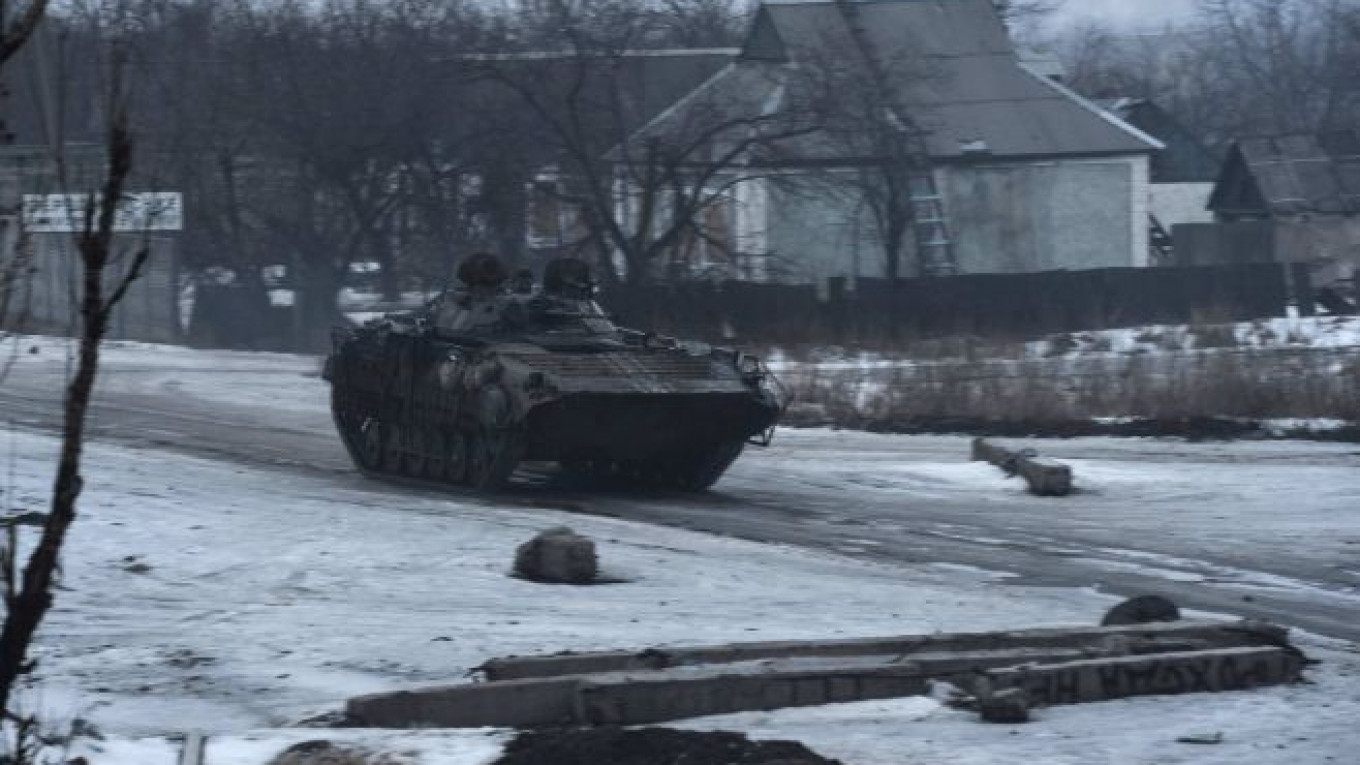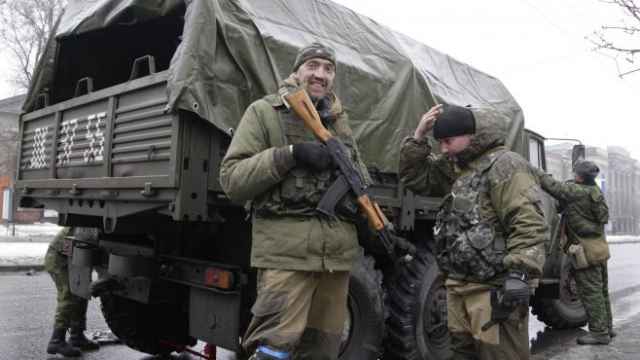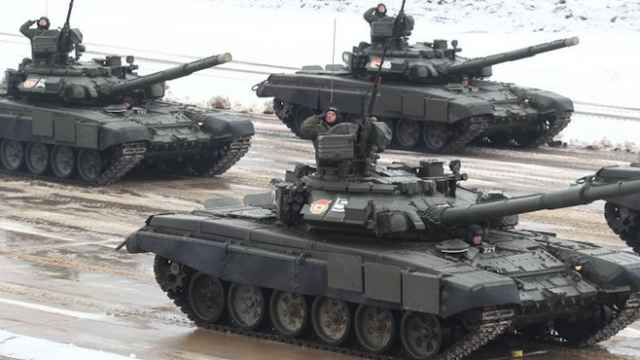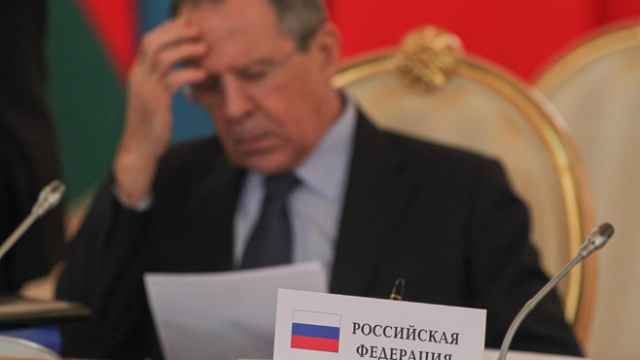President Vladimir Putin's new peace proposal for Ukraine is little more than a blueprint for military occupation to secure territory seized by Moscow-backed rebels, the U.S. envoy to the United Nations said on Wednesday.
"The plan would seek to legitimize territorial gains made by separatists in September as well as Russian personnel and equipment on the territory of Ukraine," U.S. Ambassador Samantha Power told the UN Security Council.
"Let us pull the veil away from Putin's peace plan and call it for what it is — a Russian occupation plan," she said during a special meeting of the 15-member body on Ukraine.
Putin floated the proposal to end a conflict in which more than 4,800 people have died since last April to Ukrainian President Petro Poroshenko last week. But Moscow said on Sunday Poroshenko rejected the plan.
Putin's spokesman said the proposal called for a cease-fire by government forces and separatist militiamen in southeastern Ukraine, and the withdrawal of heavy artillery by both sides.
Power said it was "a plan that would free Russia from the commitment it made in Minsk to withdraw its fighters and return control over the international border to Ukraine."
"Time and again President Putin has extended an olive branch in one hand while passing out grad missiles and tanks with the other," she said.
Power was referring to a peace plan agreed in Minsk, Belarus, last September between Ukraine, Russia and pro-Russian separatist leaders to end the war.
Russian Ambassador Vitaly Churkin blamed Kiev for the recent upsurge in violence and said Moscow was ensuring "full compliance with the Minsk agreement."
Lithuanian Ambassador Raimonda Murmokaite said "Russia's intentions to rewrite the Minsk agreements in a way that would legitimize and accept the territorial gains achieved by the militants speaks to Kremlin's wholehearted support for those criminals."
The Minsk plan provides for a cease-fire and withdrawal of foreign fighters and military equipment from Ukraine. The cease-fire has been very shaky from the start and hundreds have died since September in clashes Kiev says have involved regular Russian troops.
British Ambassador Mark Lyall Grant joined the criticism of Moscow, citing "the usual pattern of Russian denials and misinformation." He also called on Moscow to stop using humanitarian convoys to supply rebels with arms.
The council is deadlocked on Ukraine, a topic it has discuss dozens of times since last spring.
A Message from The Moscow Times:
Dear readers,
We are facing unprecedented challenges. Russia's Prosecutor General's Office has designated The Moscow Times as an "undesirable" organization, criminalizing our work and putting our staff at risk of prosecution. This follows our earlier unjust labeling as a "foreign agent."
These actions are direct attempts to silence independent journalism in Russia. The authorities claim our work "discredits the decisions of the Russian leadership." We see things differently: we strive to provide accurate, unbiased reporting on Russia.
We, the journalists of The Moscow Times, refuse to be silenced. But to continue our work, we need your help.
Your support, no matter how small, makes a world of difference. If you can, please support us monthly starting from just $2. It's quick to set up, and every contribution makes a significant impact.
By supporting The Moscow Times, you're defending open, independent journalism in the face of repression. Thank you for standing with us.
Remind me later.






